In today’s world, being online is super crucial for any business, including travel agencies.
Search engine optimization (SEO) boosts your website, so it appears higher on search engine pages like Google.
This means more people can find your travel packages and tours.
Let’s talk about the basics of SEO for travel agencies and why it’s so important.
What is SEO?
SEO is all about improving your website so it appears more often when people search for things online.
It’s like making your shop more visible on a busy street.
Why is SEO Important for Travel Agencies?
Lots of folks start planning their trips by looking online.
If your travel agency shows up first when they search for travel stuff, they’re more likely to check out what you offer.
This means more people visiting your site, asking questions, and booking tours.
Key Elements of SEO for Travel Agencies
- Keyword research is about finding the words people use when searching for travel-related products and services so you can use them on your website.
- On-page optimization: It’s like sprucing up your website so search engines understand it better. This includes things like titles, descriptions, and the content of your pages.
- Off-page optimization is about getting other websites to link to yours, sharing your content on social media, and showing that your website is trustworthy.
- Local SEO: If you want to attract folks in your area, local SEO helps your agency show up when people search for travel services nearby.
- Mobile optimization: As more people use their phones to browse the web, it’s important to ensure that your website looks good and works well on mobile devices.
FAQ:
Why should I invest in SEO for my travel agency when I can rely on paid advertising?
Paid ads can bring quick results, but SEO helps your business in the long run by bringing in more visitors over time without constantly spending money on ads.
How long does it take to see results from SEO efforts?
SEO isn’t instant. It takes time for search engines to notice the changes you’ve made and rank your site higher. Usually, it takes a few months to see a noticeable difference, but the benefits stick around for a long time.
Keyword Research
Keyword research is like figuring out the words people use when searching for travel stuff online.
It helps your travel agency’s website get noticed more on search engines like Google.
Here’s what you need to know about keyword research:
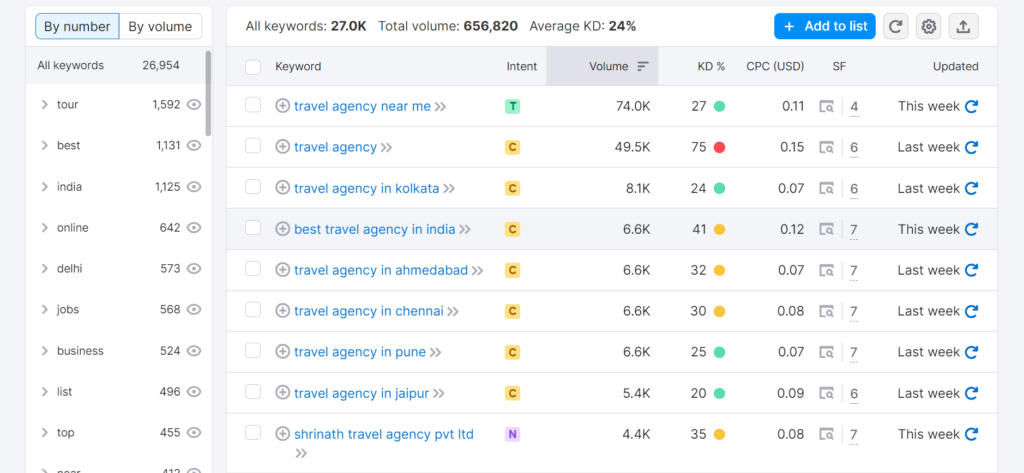
1. Identifying Relevant Keywords
ᐧ This means finding the words and phrases people type into search engines when looking for travel services.
ᐧ Tools like Google Keyword Planner or SEMrush can help you find these popular keywords related to your travel business.
2. Long-tail Keywords for Niche Markets
ᐧ Long-tail keywords are longer and more specific phrases targeting a smaller group. They might have fewer searches, but they can bring in visitors interested in your offer.
ᐧ For example, instead of just “beach vacations,” you could focus on “family-friendly beach resorts in Hawaii.”
3. Competitor Analysis
ᐧ This is about looking at what other travel agencies are doing with their websites. It can help you understand which keywords they’re using and how they’re trying to get noticed.
ᐧ Tools like Ahrefs or Moz can give you insights into your competitors’ top-ranking keywords and where you can improve your website.
FAQ:
How many keywords should I target for my travel agency?
It’s good to have a mix of popular keywords that lots of people search for and specific ones that match what your agency offers. Start with a few and see how they work, then add more over time if needed.
Can I use keywords that are not directly related to travel for my website?
While focusing on travel-related keywords is essential, you can also include other words related to your target audience’s interests. Just make sure they make sense and fit with what your agency provides.
On-Page Optimization
On-page optimization means making your website look suitable for search engines and people visiting it.
Here’s what you need to know about making your website better:
Title Tags and Meta Descriptions

ᐧ Title tags are like the names of your web pages in search results. They should tell people what the page is about and include words matching their search.
ᐧ Meta descriptions are short summaries that appear in search results. They should be exciting and make people want to click on your website.
URL Structure

ᐧ Your website’s URLs should be easy to read and understand. Avoid using lots of numbers or weird symbols.
ᐧ Put important words in your URLs so search engines know what your pages are about.
Quality Content Creation
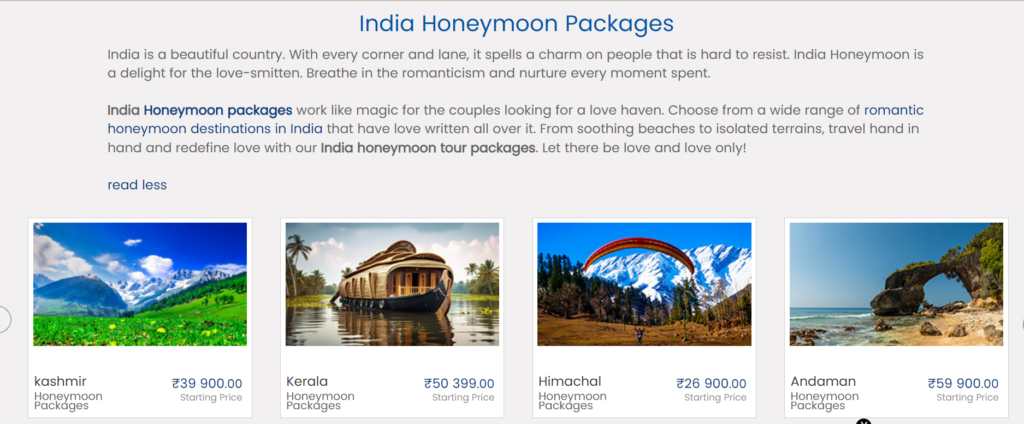
ᐧ It’s super important to have good content on your website. This could be travel guides, blog posts, or helpful articles.
ᐧ Use words that people might search for naturally in your content. But only do it with a few keywords, or it might look strange.
Image Optimization
ᐧ Making your pictures look good can make your website load faster and be easier to use. Give your images names that describe them well and use words people might search for.
ᐧ Ensure your images are manageable, or they might slow down your website. Compression helps keep them looking good while making them load faster.
FAQ:
Do I have to fix every page on my website?
While it’s great to improve all your pages for search engines, start with the most important ones, like your homepage or popular blog posts.
How often should I update my website to make it better for search engines?
Keeping your website fresh and updated tells search engines it’s still essential. Update your content regularly, significantly if things change with your travel services or there are new trends people are searching for.
Off-Page Optimization
Off-page optimization is like spreading the word about your travel agency’s website beyond your pages.
It’s about getting other websites and social media platforms to talk about you, which can boost your website’s visibility on search engines.
Let’s break down the key strategies of off-page optimization:
Building Backlinks
ᐧ Backlinks are like stamps of approval from other websites. When respected sites link to yours, search engines see your website as more trustworthy and vital.
ᐧ Aim to get backlinks from high-quality and relevant websites in the travel industry, such as travel blogs or tourism sites.
ᐧ Avoid getting backlinks from spammy or unrelated sites, as they can hurt your website’s reputation.
Guest Blogging and Content Marketing
ᐧ Guest blogging means writing articles for other websites in exchange for a link to your website. It’s a way to get your name out there when travelling.
ᐧ Content marketing is about creating useful and interesting content, such as travel guides or videos, to attract visitors to your website.
ᐧ By teaming up with other websites and sharing valuable content, you can reach more people and bring them to your travel agency’s website.
Social Media Engagement
ᐧ Platforms like Facebook, Instagram, and Twitter are perfect for showing off your travel agency and connecting with potential customers.
ᐧ Share fun and helpful content, like travel tips or special deals, to get people interested and talking about your agency.
ᐧ Respond quickly to comments and messages from your audience. This helps build trust and makes your agency look good.
FAQ:
How can I get more websites to link back to my travel agency’s website?
You can ask other travel websites to feature your content or collaborate on projects. Also, creating content that people want to share can naturally attract backlinks.
Does being active on social media help my website rank higher on Google?
While being active on social media doesn’t directly affect your Google ranking, it can indirectly help by driving more people to your website and getting them to talk about it, which Google notices.
Local SEO Strategies
Local SEO strategies ensure folks nearby can easily find your travel agency online.
It’s like hanging a big sign in your digital window to attract local customers.
Let’s check out some simple tactics for local SEO:
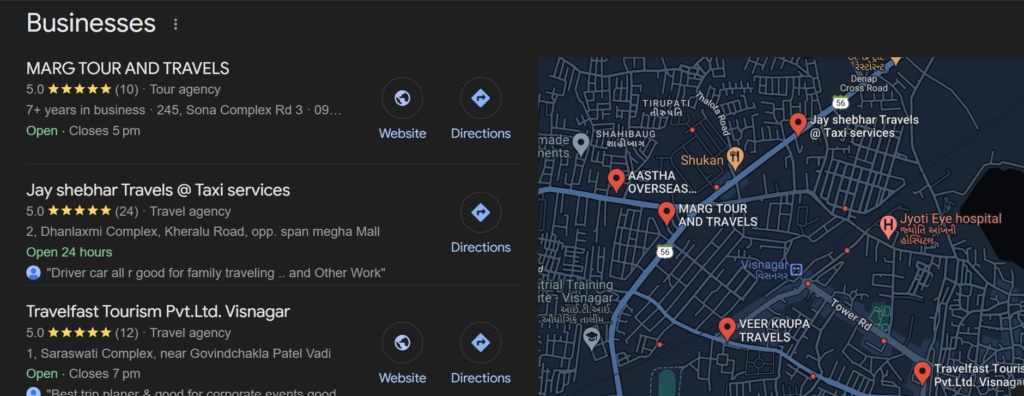
Google My Business Optimization
ᐧ Google My Business is a free tool for managing businesses’ online presence, including their appearance on Google Maps and Search.
ᐧ Claim and verify your Google My Business listing for your travel agency to ensure your address, phone number, and hours are correct.
ᐧ You can improve your listing by adding lovely photos, writing a detailed description, and asking happy customers to leave reviews.
Local Listings and Directories
ᐧ Local directories and listings are websites where businesses can list their services and contact info.
ᐧ Ensure your travel agency is listed accurately on popular local sites like Yelp, TripAdvisor, and Yellow Pages.
ᐧ Keep things consistent by using the same name, address, and phone number (NAP) everywhere.
Customer Reviews and Testimonials
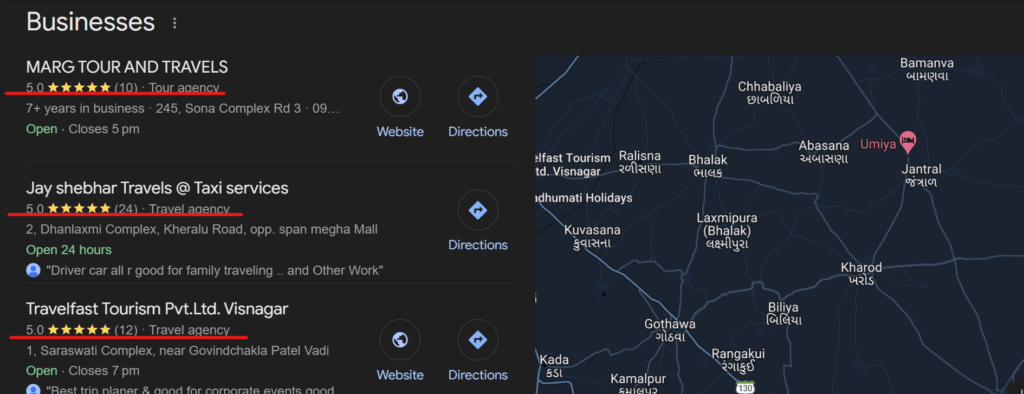
ᐧ Reviews from customers are super important for local SEO and gaining trust with potential customers.
ᐧ Ask happy customers to leave good reviews on your Google My Business listing and other review sites.
ᐧ Respond to reviews, even the bad ones, nicely and quickly to show you care about what your customers think.
FAQ:
How much do online reviews matter for my travel agency’s local SEO?
Online reviews are essential for local SEO because they help build trust with potential customers. Good reviews can boost your rankings in local searches and convince more people to pick your agency.
Should I use local keywords on my travel agency’s website?
Using local keywords on your website can help your agency appear higher in local search results. Include words related to your location in your website’s content, titles, and headings to catch the attention of folks looking for travel services nearby.
Mobile Optimization
Mobile optimisation is all about making sure your travel agency’s website looks and works great on smartphones and tablets.
Since many folks use their phones to browse the internet, giving them a smooth experience is super important.
Here’s what you need to know:

Responsive Website Design
ᐧ Responsive design means your website adjusts itself to fit different screen sizes, whether a big computer screen or a tiny phone screen.
ᐧ This ensures that your website always looks nice and is easy to use, no matter what device someone is using.
Mobile-Friendly Content
ᐧ People read stuff differently on their phones than on a computer, so making your content easy to read on mobile is essential.
ᐧ Use short and easy-to-read text, make the words more prominent, and use clear buttons to make it easy for people on their phones to find what they’re looking for.
Page Loading Speed

ᐧ People on their phones want websites to load fast, so making your website load quickly is essential.
ᐧ To make your website load faster on phones, you can make images smaller, squeeze down the code, and use tricks.
FAQ:
Why is it important to make my website work well on phones for my travel agency?
Making your website work well on phones ensures that people who visit your site on their phones have a good experience. Since many people use their phones to browse the internet, this can keep them happy, make them stay on your site longer, and tell their friends about it.
How can my website work well on phones?
You can use tools like Google’s Mobile-Friendly Test to see if your website looks good and works well on phones. You can also just pull up your website on different phones and see if everything works like it should. Look for things like text that’s too small, buttons that are hard to tap, or pages that take forever to load on phones.
Tracking and Analytics
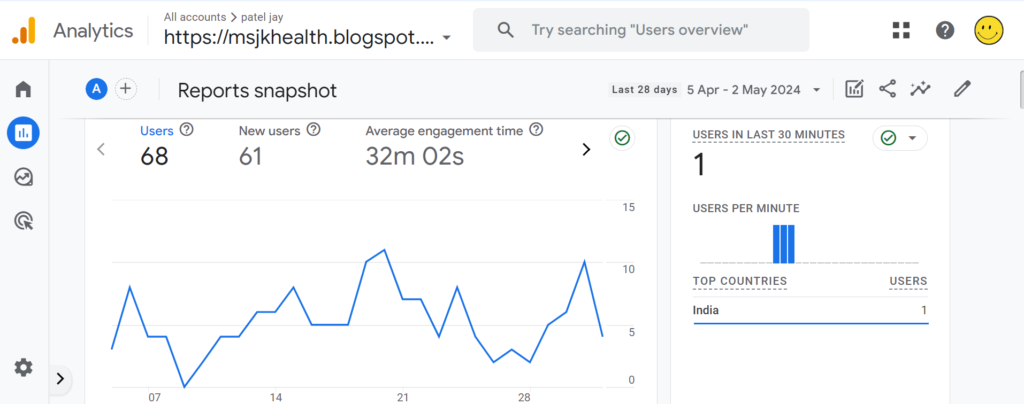
Knowing how your travel agency’s website is doing and what people are doing on it is super important for making it better.
Tracking and analytics help you collect helpful info about your website’s visitors and what they’re up to.
Here’s what you need to know:
Setting Up Google Analytics
Google Analytics is a handy tool for tracking visitors to your website and their activities.
ᐧ To start, you need to create an account, add a unique code to your website, and set up a few things.
ᐧ Once it’s all setup, Google Analytics gives you lots of info about your website, like how many people visit, who they are, and how they found your site.
Monitoring Key Metrics
Monitoring some crucial numbers to see how your website is doing is essential.
- Website traffic: How many people visit your website in a certain amount of time.
- Bounce rate: The percentage of people who leave your site right after they come to it.
- Average session duration: How long people stay on your website on average.
- Conversion rate: How many people do what you want them to do, like book a tour or sign up for your newsletter.
Adjusting Strategies Based on Data
ᐧ Use the info from Google Analytics to determine what parts of your website need work.
ᐧ For example, if many people leave your site immediately after they arrive, you might need to improve the content on those pages to keep them interested.
ᐧ Try different things on your website, like other ways of showing info or ads, to see what works best for your travel agency.
FAQ:
Why is tracking what’s happening on my travel agency’s website important?
Keeping track of your website’s visitors and their actions helps you understand how well it works. This enables you to determine what’s going well and what needs improvement to improve your website.
How often should I check my website’s info?
Check your website’s info regularly to see how it’s doing. You can check every day, every week, or every month, depending on how much you want to know and how busy your website is.
Conclusion
Wrapping up our journey through SEO for travel agencies, let’s summarize what we’ve learned, look ahead to future trends, and share some final thoughts:
Recap of Key Points
ᐧ Let’s review the most important points we’ve covered, such as why SEO matters for travel agencies, key strategies to boost visibility, and why tracking your website’s performance is crucial.
ᐧ We’ll highlight the main ideas from each section and show how they can help travel agencies improve their online presence.
Future Trends in Travel SEO
ᐧ Next, we’ll examine the future of SEO in the travel industry. We’ll talk about exciting things like voice search, visual search, and how artificial intelligence could change the game.
ᐧ We’ll discuss how these new technologies and shifts in how people search for travel info might shape how travel agencies do SEO in the coming years.
Final Thoughts
ᐧ Lastly, we’ll share some parting wisdom based on everything we’ve covered.
ᐧ We’ll encourage travel agencies to keep learning and adjusting their SEO strategies to keep up with the ever-changing digital world.
ᐧ We’ll stress the importance of staying current with trends, trying out new ideas, and always prioritizing the user experience for long-term success in online marketing.
FAQ:
What should I focus on as I continue my SEO efforts?
Going forward, keep an eye on the latest SEO trends and adapt your strategies accordingly. To stay competitive, prioritize things like making your website user-friendly, creating great content, and ensuring it works well on mobile devices.
How can I stay in the loop about upcoming trends in travel SEO?
Stay connected with industry news, read trusted SEO blogs, join relevant forums, attend webinars and conferences, and connect with others in the field. Also, regularly check your website’s analytics to spot areas for improvement and potential growth opportunities.